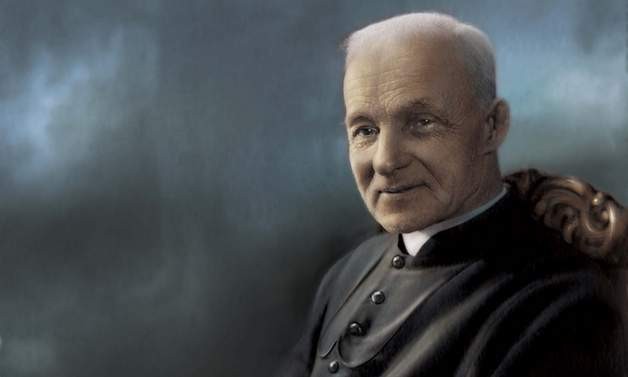Does God only give grace to smart people? Is holiness directly proportional to intelligence or ability? Obviously the answer is no, but it sure seems like the great saints are all also holy geniuses. St. Paul, St. Thomas Aquinas, St. Bonaventure, St. Augustine, St. Catherine of Siena; the older saints seem academic all-stars. Or our two soon-to-be-saints: Bl. John XXIII and Bl. John Paul II; no mean intellects in either of them. The Little Flower, St. Thérèse of Lisieux, with her “Little Way,” might seem a simple mind, but anyone who has read her writing knows the profound wisdom found within; she is a Doctor of the Church after all. St. Martin De Porres? Even he was known for his ability to solve thorny theological questions brought to him by his Dominican brothers and inquiring bishops. Could it be that God indeed loves the poor in spirit, but really favors the rich in intellect?
As usual, St. Thomas offers some help to our question. In discussing the theological virtue of charity, the friendship with God that makes us holy, he asks whether it is infused according to natural gifts and capacities. Given St. Thomas’s famous axiom that grace does not destroy nature but perfects it, one might expect him to align charity given in grace with natural abilities. Instead he offers this:
The quantity of a thing depends on the proper cause of that thing, since the more universal cause produces a greater effect. Now, since charity surpasses the proportion of human nature . . . it depends, not on any natural virtue, but on the sole grace of the Holy Spirit Who infuses charity. Wherefore the quantity of charity depends neither on the condition of nature nor on the capacity of natural virtue, but only on the will of the Holy Spirit Who “divides” His gifts “according as He will. (ST, II-II, 24, 3)
Since God through the Holy Spirit is the giver of charity, and since true charity is beyond the capacity of human nature left to its own devices, God can give it without reference to natural gifts like intelligence. And this seems true in the case of the uncharitable: there are plenty of examples of intelligent people who lack charity—the “evil genius” is a standard literary character for a reason. But today also offers us a positive example of a man graced with charity apart from much natural intelligence: St. André Bessette.
St. André was as simple as can be. Born in Quebec in 1845, he was orphaned at age twelve and received little formal education. But St. André had charity, and he was sent to the Holy Cross novitiate with a note from his pastor that said: “I am sending you a saint.” But this saint was no intellectual powerhouse (he could not read or write), nor was he physically able to do even the normal house chores and manual labor. So he was assigned to be the porter (doorman) at Notre Dame College in Montreal, a school for boys, ages seven to twelve. It was here that he did his saintly work for forty years: answering the door, welcoming visitors, waking up the boys, and various other menial tasks at the college.
And as St. André was faithful in these little things, God rewarded him with great things. In 1904 he began a project to collect money and materials to build a chapel for his patron and constant heavenly advocate, the humble St. Joseph. The building began as a wood shelter, fifteen feet by eighteen feet, where people could come and pray to St. Joseph. Not content with this meager edifice, St. André continued to collect money and to work on the chapel that became, in time, the largest Catholic church in Canada: St. Joseph’s Oratory of Mount Royal. St. André was allowed to be the caretaker of the Oratory in 1909 and assisted visitors there until his death in 1937. Over a million came to pay their respects at his funeral in the Oratory.
St. André was a truly simple saint, and his great patron, St. Joseph, was also a perfect example of the truth of St. Thomas’s teaching: it is the Holy Spirit who decides how much grace and how many divine gifts to bestow on us, above and beyond any natural capacities.
✠







